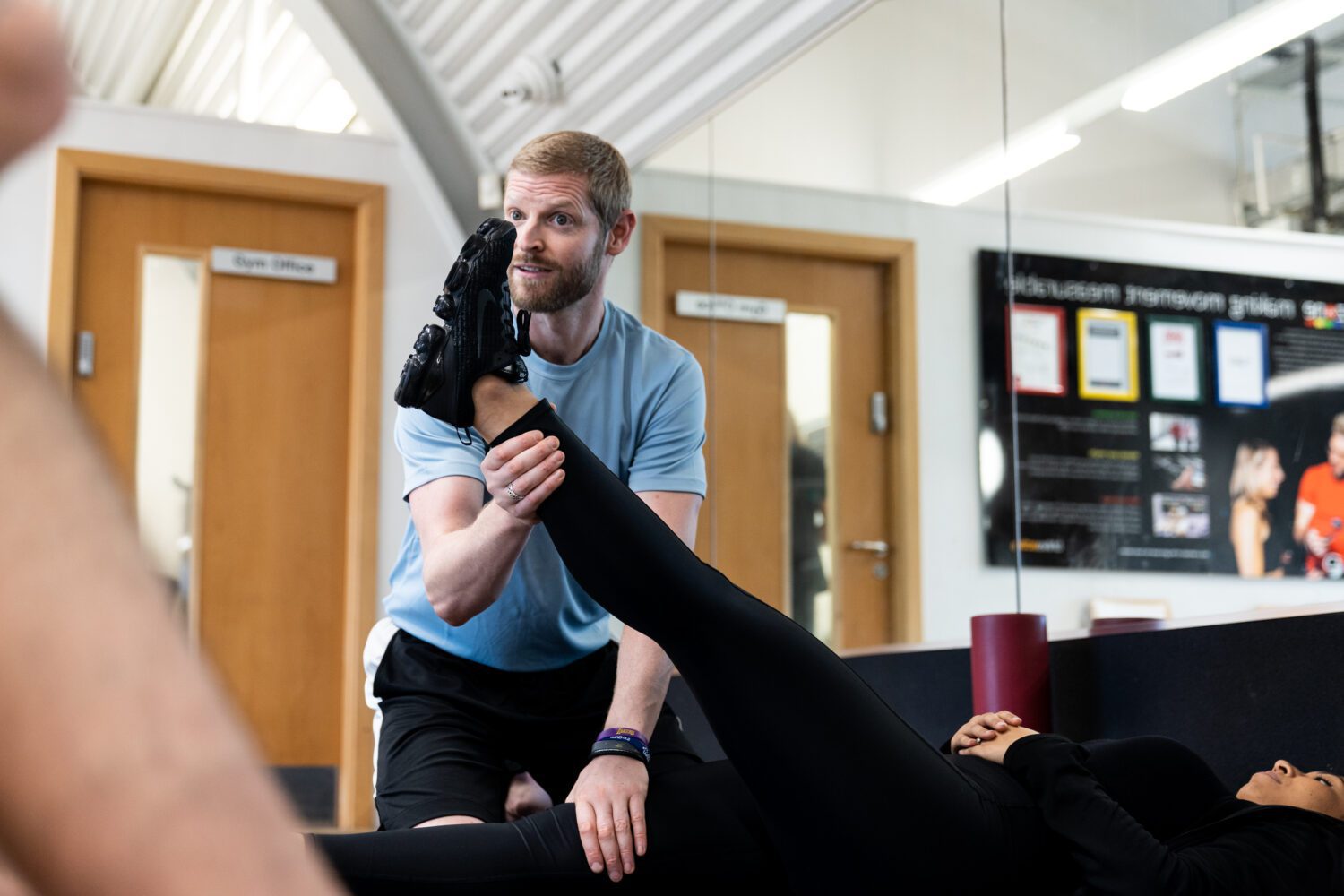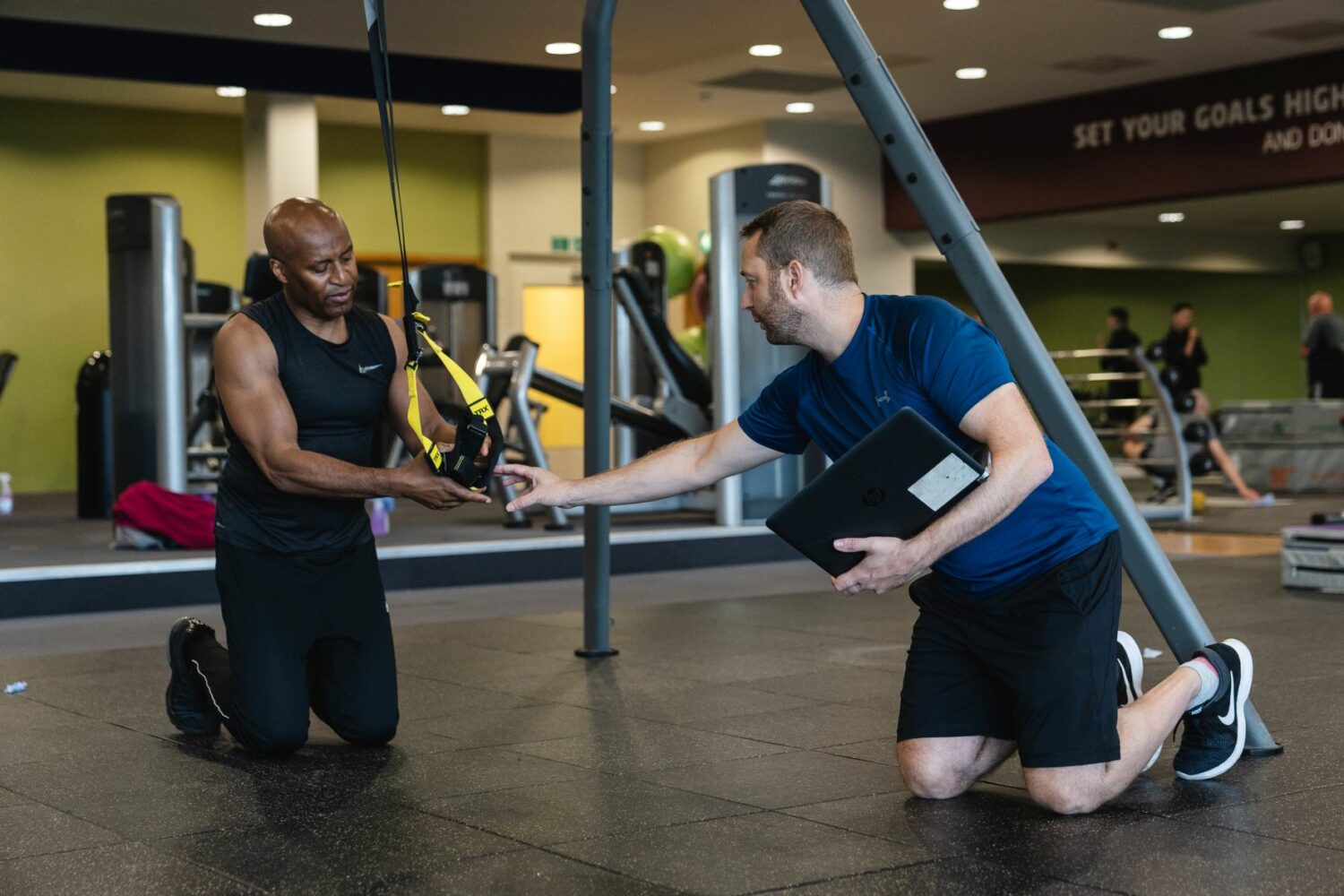Highest paying pt jobs can vary in the fitness industry, it really is dependent on what you do after you receive your qualification to determine how much you can earn as a personal trainer. Similar to all industries as a personal trainer there are different routes you can take to boost your earning potential. Below we have highlighted the top 10 highest pt job roles within the fitness industry, we have included salary, job scope and qualifications needed.
1. Sports massage therapist
Sports massage therapy is a job role that is a route of personal training which can increase earning potential. The ever-growing fitness market has meant there is more of a demand for individuals qualified at this level with television and media for sporting teams, as well as working for the NHS or private clinics. Working privately will allow you to set your own rates which gives a wider earning potential, however, this may be challenging if you are just starting out.
As a sports massage therapist, you will provide advice and guidance on how to prevent injuries from occurring during sports and exercise activities. This is used in the sports industry to support any injuries which occur by being able to advise with a range of techniques to help rehabilitate them back to full fitness.
In order to become a Sports Massage Therapist, you need to be qualified will a Level 3 Diploma in sports massage therapy.
How much can you earn as a sports massage therapist?
You can earn between £25k-£35k per year as a sports massage therapist, as mentioned above this salary can be built upon with different routes in this industry. This is the average working salary for a sports massage therapist, privately there is scope to earn more by being in control of your own rates.

2. Physiotherapist
A physiotherapist is another highly paid job within personal training, physiotherapist helps people who have had surgery, illness, ageing or disability recover or work a diagnosis to help improve their form from their given injury by putting together a treatment plan. This can range from exercise treatment, electrotherapy and manual therapy techniques.
There are also options to explore within physiotherapy by becoming qualified in specialised areas which can help improve earning potential. You can specialise in sports injuries, critical care, working with the elderly or working with children or cancer patients.
How much can you earn as a physiotherapist?
A physiotherapist can earn on average between £24k-£42k a year, this salary can be dependent on specializations, qualifications and NHS or private work.
3. Gym owner
A gym owner involves a lot of self-motivation and hard work to build up to where you want to be, however it can be a very rewarding job role within personal training and can also benefit from a well-paid income. If you have got started in a gym business and worked your way up, this can be a great way to get the most from your personal training qualification.
As a gym owner, you will oversee and manage the day-to-day activities that go on in health clubs or gyms. You will pull together marketing strategies and techniques to promote your gym services to attract new customers. You will responsible for all aspects of the business to satisfy customers and build on brand awareness.
In order to become a gym or health club owner, a degree in business management is beneficial to understand how to run and grow a business. Already being qualified within the fitness industry as a personal trainer will be beneficial to understanding the industry and also help to employ the right staff for your business goals. Having your own understanding of the physical health and fitness industry will go a long way.

How much can you earn as a gym owner?
Gym and health club owners’ salaries can vary depending on location, size and type of gym. You can earn anywhere between £54k up to £102k as a gym owner.
4. Strength and conditioning coach
As a strength and conditioning coach, you facilitate training for athletes, which involves assisting on nutrition intake, exercise supervision and being able to adjust exercise plans accordingly depending on the client.
Due to strength and conditioning coaches having a lot of involvement in working closely with sports teams and athletes to improve and build on their training plans, they have the potential to earn a high salary.
To become a strength and conditioning coach you need to study a Strength and conditioning course.
How much can you earn as a strength and conditioning coach?
A strength and conditioning coach can anywhere between £30k to £65k, the salary for his job type can vary depending on a few factors including freelancing, sports team status, professional bodies and studios or private gyms. Dependent on the route you take as a strength and conditioning coach there is an opportunity to build and grow in knowledge and salary.
5. Personal trainer
A personal trainer has the potential to build and grow in their career through self-investment in continuous professional development courses, which in turn with benefit from a higher salary. There are also alternative routes you take once you become a personal trainer to earn more, such as working in popular locations like London, working with professional athletes or learning specializations.
As a personal trainer, you are responsible for helping your clients achieve certain fitness goals such as weight loss, strength training, toning, or overall health management and improvement. The knowledge of personal trainers will allow them to understand how to adapt and assist in unique training plans developed to meet the client’s goals through high quality training.
The minimum qualification to become a personal trainer is a Level 3 Personal Training course, from here you can take additional CPD courses in specialisms such as advanced resistance training, kettlebell training or indoor cycling. Often these qualifications have accreditation such as CIMSPA endorsed which means you will be added to REPs level of personal trainers. Gaining unique specialisms will help you stand out from other personal trainers and demonstrate that you invest in your learning continuously. As a qualified personal trainer, you can seek employment in gyms such as Nuffield Health, Virgin Active or David Lloyd.
How much can you earn as a personal trainer?
Personal trainers can earn anywhere between £15k up to £60k a year across the UK, similarly, your salary is dependent on the route you take once qualified. The salary of a personal trainer is dependent on your experience and qualifications, the more you build on your skill set the more you could earn. For more information read our blog on personal trainers’ salaries.

6. Nutrition coach
A nutrition coach is another pt job that has a higher salary, if you are a personal trainer who can also provide nutritional advice you are likely to attract more clients. As a nutrition coach, you will use your science of food to help clients make better choices with their food intake. The aim of becoming a nutrition coach is to improve individuals health and help prevent diseases.
In order to become a nutrition coach, you need to study either a BA Hons degree in Nutrition or a Level 4 diploma in advanced nutrition. However, if you are just starting out and not sure if you want to go down the nutrition route or the personal training route, you can study both at a Level 4 elite personal trainer course with RSPH nutrition.
To find out more about becoming a nutrition coach read our handy guide.
How much can a nutrition coach earn?
As an average employed nutrition advisor, you can earn in the region of £12k up to £45k depending on whether you are employed or self-employed, the number of clients you have, experience and location.
7. Self-employed personal trainer
As a self-employed personal trainer you would work similarly to any other self-employed job role, you have flexibility on the hours you work, the clients you have and the personal training sessions you run with all the earnings coming to you. This scope allows you to be in control of what you want to charge which will determine how much you can earn as a successful personal trainer.
Working as a self-employed personal trainer means you are responsible for finding your own clients, marketing yourself and building your own fitness business. This is a pt job that has no limitations for expansion and allows you to earn a lot more money. As a self-employed personal trainer, you could either set up your own personal training studio or use outdoor space to train your clients.
To become a self-employed personal trainer you still need to be qualified at minimum a Level 3 Personal Training Diploma.
How much can you earn as a self-employed personal trainer?
A self-employed personal trainer can earn up to £60k a year, to do this you would need to be charging £50 an hour and work at least 35 hours a week. This is achievable by having between 15 to 20 regular clients who would book 2 sessions a week.
8. Private studios or small gyms
Working as a personal trainer in a small gym or private studio can be a much better option when researching pt jobs. Working in commercial gyms can be limiting in the clients you receive, the cut you get from your client’s training and room for progression. A good route around this is carrying out some research on smaller studios or gyms that are looking for personal trainers.
Due to them being on a small scale, it is likely they rely on your reputation and experience to raise awareness of this studio or gym to your clients as well as retain them. As a small company, they will care more about your personal development giving you room to progression within a smaller business situation. This is turn will benefit your earning potential as well as career progression and experience.

9. Freelancer personal trainer
Freelancer personal training is similar to being self-employed however you could work as a freelancer within a gym or health club, in a clients home, in your own personal training studio or a private gym. The reason many personal trainers tend to take the freelancer pt job route eventually is due to them wanting to increase their earning potential.
As a result of this you would be able to control the hours you work, the clients you train and have the ability to venture out on building your own fitness business if you wanted to. Becoming a freelancer personal trainer provides great opportunities which is why it has a higher paying salary.
10. Group fitness instructors
A group fitness instructor works together with small or large groups to lead exercise classes. This falls under one of the higher paid pt jobs as you have the ability to run your own fitness classes and charge your own fee.
To become a group fitness instructor you need to study a Level 2 Gym Instructor qualification or alternatively a Level 3 Personal Training Course. Once qualified you can instruct and lead your own classes either within a gym or in studio space.
How much do group fitness instructors earn?
As a group fitness instructor, you can earn anywhere between £23k up to £45k, this salary can be dependent on location, type of class and personal experience.
Final Thoughts
Overall the fitness industry is continuously growing with new opportunities and variations coming to light, so as a Personal Trainer there are various different routes you can take to earn a higher salary. Pt jobs are always adapting and changing so investing in continuous professional development courses is always going to be beneficial to your career in fitness as well as increasing your salary.
Looking to become a personal trainer? Start now.